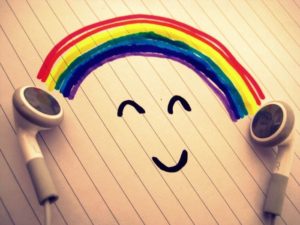
Chain reaction tantrums in the autism classroom can be overwhelming. There are times where one child’s screams can set off even the calmest classmate and it’s hard to regain instructional control. When the tension is mounting, we dim the lights and turn on the music. Soothing melodies mingle with the yelling until eventually the cries diminish and peace is restored.
After being a music teacher and a private piano teacher for many years, I’ve witnessed and experienced the influence of music. But the power of music is also based on fact. Studies show that soothing music helps your body release serotonin (a hormone that increases happiness and a sense of well-being), dopamine (a neurotransmitter that makes you feel good), and norepinephrine (a hormone that brings about euphoria).
Here’s the point where we should be careful. Music has grown very diverse. There is a style bound to please everyone. I enjoy a wide variety, and listen to different music for different situations. But have you ever listened to a song that brought you down low? There are some songs that pound in lyrics filled with despair and negative thoughts. I’ve deleted discouraging/degrading songs off my daughters’ sound cloud—losing parenting points from them I’m sure. Why pump in something that will weigh us down and add to depression?
Music isn’t the only thing that has amazing potential if we use good judgment. Books and people have the power to be uplifting (or depressing) as well. I’m thankful that there are self-help books for nearly every problem I could encounter. Non-fiction and fiction can both encourage (or discourage) us. I’m also grateful for all of the positive people in my life who rub off on me. I need to seek them out even more. People with negative attitudes are infectious too, so I strive to avoid absorbing their discontent.
Now it’s time to unwind with some classical music. Maybe it will get the “A is for Apple” song from the autism room out of my head.
